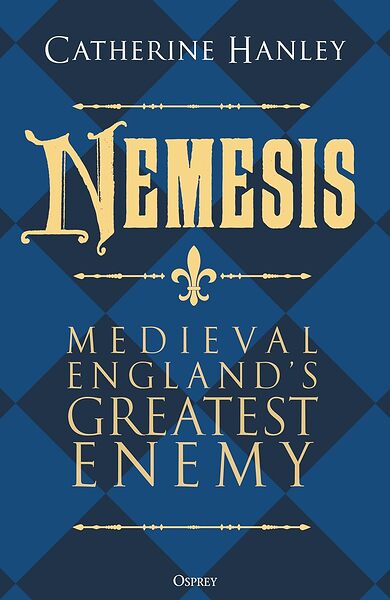Looking for a good read? Here is a recommendation. I have an unusual approach to reviewing books. I review books I feel merit a review. Each review is an opportunity to recommend a book. If I do not think a book is worth reading, I find another book to review. You do not have to agree with everything every author has written (I do not), but the fiction I review is entertaining (and often thought-provoking) and the non-fiction contain ideas worth reading.
Book Review
The King Who Foiled the Plantagenets
Reviewed by Mark Lardas
August 31, 2025
“Nemesis: Medieval England’s Greatest Enemy,” by Catherine Hanley, Osprey Publishing, September 2025, 304 pages, $33.98 (Hardcover), $24.50 (E-book), $15.26 (Audiobook)
Philip II Augustus, crowned King of France in 1179 and who reigned until 1223, was the traditional villain in any English account of the Plantagenet family. He battled three Plantagenet kings, Henry II, Richard I, and John, stripping the Plantagenets of most of their power and many of their lands in France. His son Louis (who succeed Philip as Louis VIII), was invited by dissident English barons to take the crown of England.
“Nemesis: Medieval England’s Greatest Enemy,” by Catherine Hanley, presents a different view of Philip. It lifts the stereotypical view of Philip as villain to present him as a man acting in the interests of France.
That Philip emerges as far different than the cartoonish scoundrel of the English histories. He is revealed as a shrewd, intelligent leader, assuming the throne in his mid-teens, and steering France through challenges besting many leaders. Failure would have led to France’s disintegration. Instead, as his reign ended France was the most powerful state in Europe.
Hanley divides the book into four parts, one for each English king during Philip’s reign: Henry II, Richard I, John, and Henry III. Each part focuses on Philip’s treatment of that king.
The first shows how Philip played Henry II’s sons against their father and each other. Simultaneously, Philip had to deal with rival factions within France. He directly controlled only a small part of France then, the Ile De France around Paris. He held his own against Henry II, while taming his many and powerful internal foes.
The second shows his maneuvers against Richard the Lionhearted. This includes their participation in the Third Crusade, and Philip’s attempts to bring Richard, a vassal, to heel. Philip failed in that, but consolidated his position.
The third, covering John’s reign, shows Philip at his zenith. By its end, Philip had defanged the Plantagenet threat in France. His eldest son, Louis, was making a bid for the English crown.
With Henry III, Philip made peace, bringing Louis home. Philip shrewdly realized fighting a boy king legitimately holding a throne would only diminish Philip’s reputation, undermining Philip’s plans for France after Philip passed. Philip closed his reign as a benevolent sovereign.
“Nemesis” is a remarkable book, well-researched, well-written, revealing Philip Augustus in a new, positive light. Hanley acknowledges Philip’s faults. He was an imperfect man. She also shows his virtues and how his strengths transformed France to a major power.
Mark Lardas, an engineer, freelance writer, historian, and model-maker, lives in League City. His website is marklardas.com.
